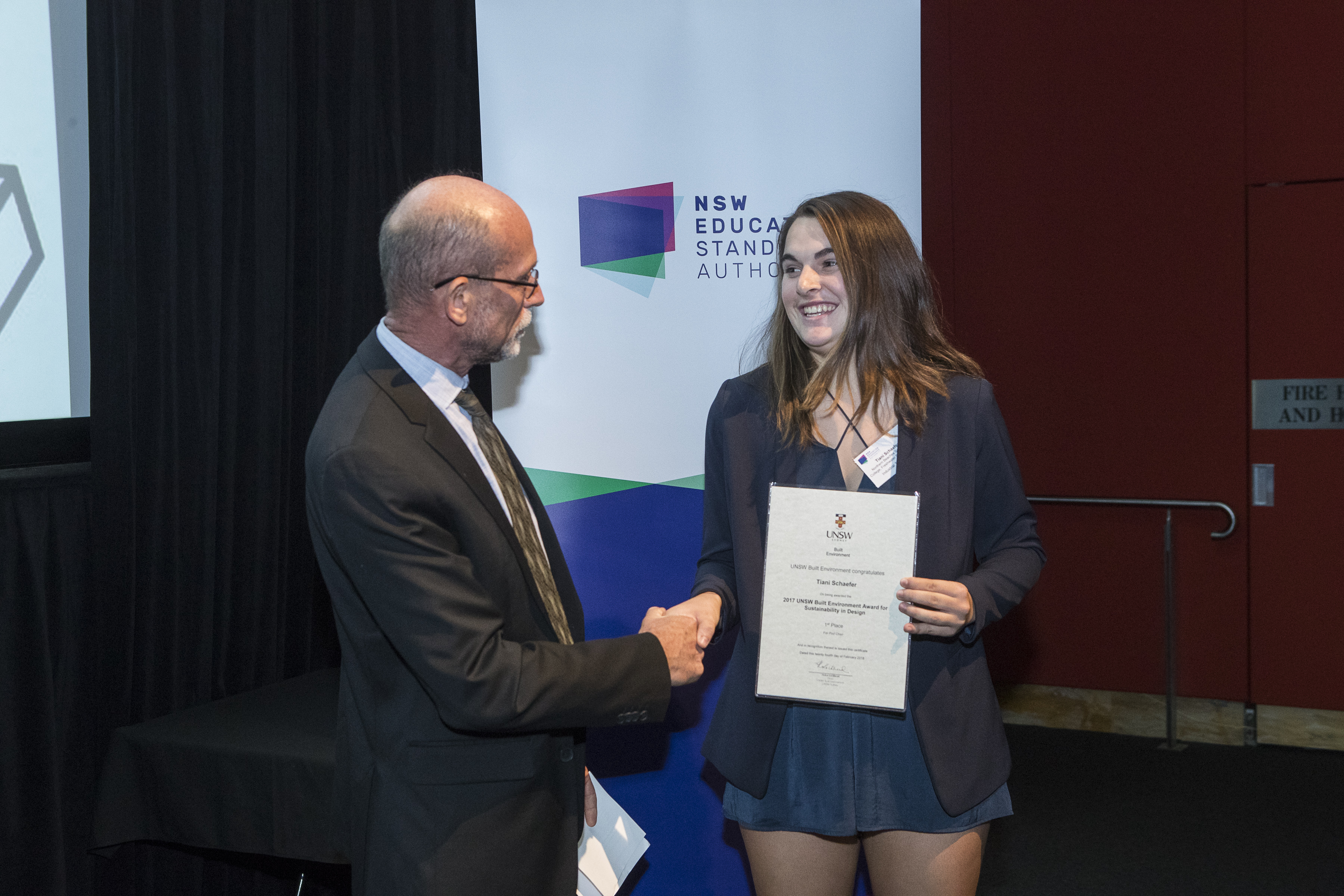Pod Chair wins sustainable design award
The Built Environment Award for Sustainability in Design has been awarded to Tiani Schaeffer for her design Pod Chair.
The Built Environment Award for Sustainability in Design has been awarded to Tiani Schaeffer for her design Pod Chair.

The Built Environment Award for Sustainability in Design is presented to an HSC student featured in the Shape 2017 exhibition whose project best identifies the need for sustainability in design and incorporates key elements throughout the design process.
Tiani Schaeffer, who completed her HSC in 2017 at Northern Beaches Secondary College, Freshwater Senior Campus, was inspired by natural living environments to create her piece. She put a lot of effort into refining her knowledge of CAD, prototyping and jig making skills to complete the project, which required accurate measurements and angles to ensure its joints met perfectly. She also perfected her technical woodworking skills in woodturning and hand-shaping to create the organic, natural form of her chair and learnt the importance of planning ahead.
“I really learnt the importance of planning and performing tasks such as pre-finishing and staging glue-ups in order to get a quality product,” she said.
In choosing a recipient for the award, the judges from the UNSW Built Environment Industrial Design Program considered the ways in which shortlisted projects showed an understanding of the different dimensions of sustainability and revealed a creative and exploratory process leading to a resolved and clearly communicated final design proposition. They found that Tiani’s work looked like a “voyage of discovery” in which the work of others is acknowledged and that there is evident learning from the detailed process of resolving the form and making the prototype on display. She addressed sustainability in the development of her project by using quality materials which promote a strong emotional bond with the owner and a potentially long-lasting product. By constructing the chair from small individual timber elements, she used a valuable resource in an efficient way.
UNSW Built Environment sponsors the award which focuses on shaping future cities - cities that are resilient, informed, connected, healthy, smart, liveable and inclusive. Students at UNSW Built Environment learn and become skilled and enquiring graduates who can positively engage, adapt and shape our future cities with people and the planet firmly in mind.
The Faculty offers various undergraduate courses and a range of postgraduate courses for graduates and industry professionals, including City Planning, Landscape Architecture, Construction Management, Architecture, Interior Architecture and Industrial Design and Computational design. Additionally, the faculty offers postgraduate qualifications in City Analytics, Sustainable Built Environment, Urban Policy and Strategy, Urban Development and Design and Urban Renewal and Housing.
The Shape 2017 showcase is on display at the Powerhouse Museum until 6 May 2018.